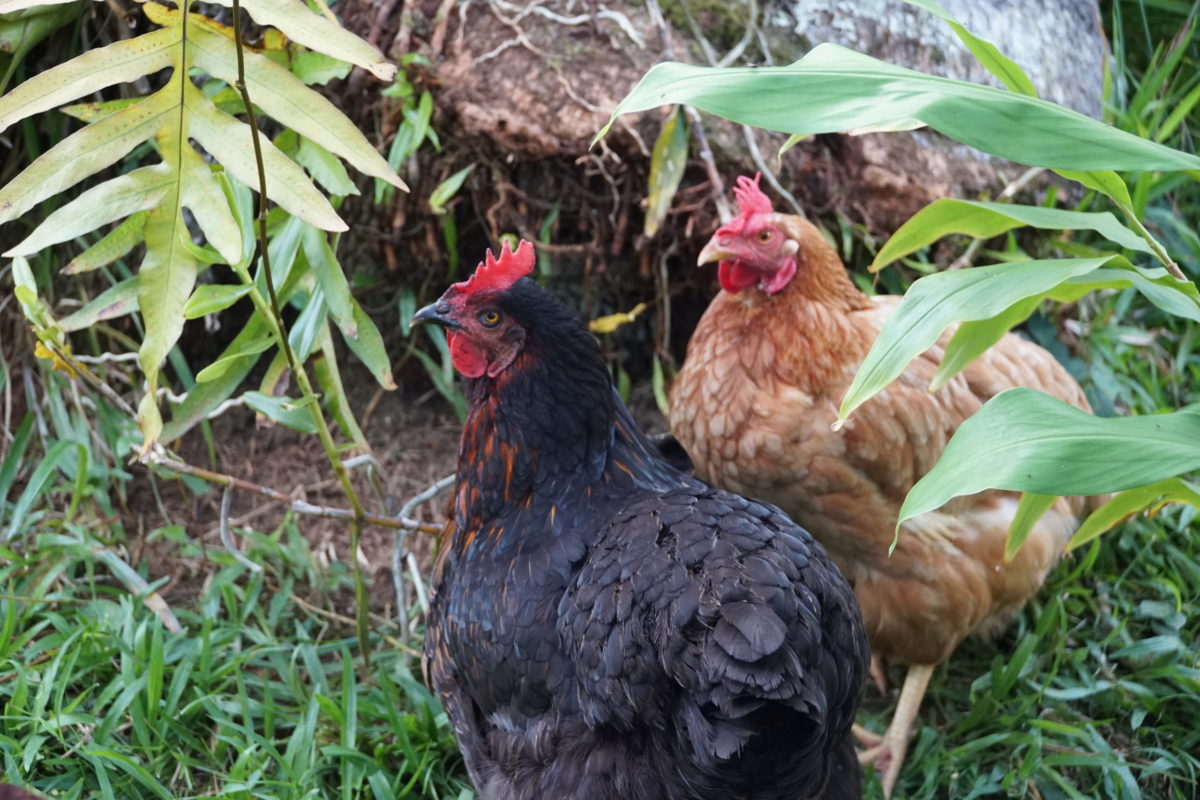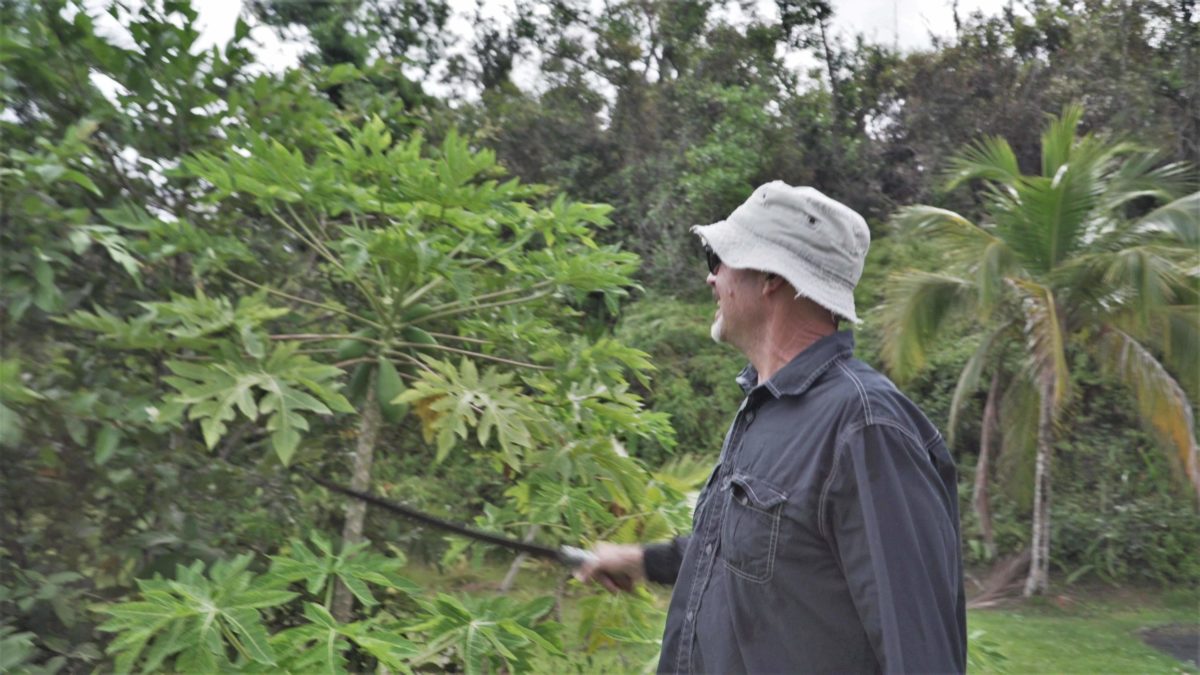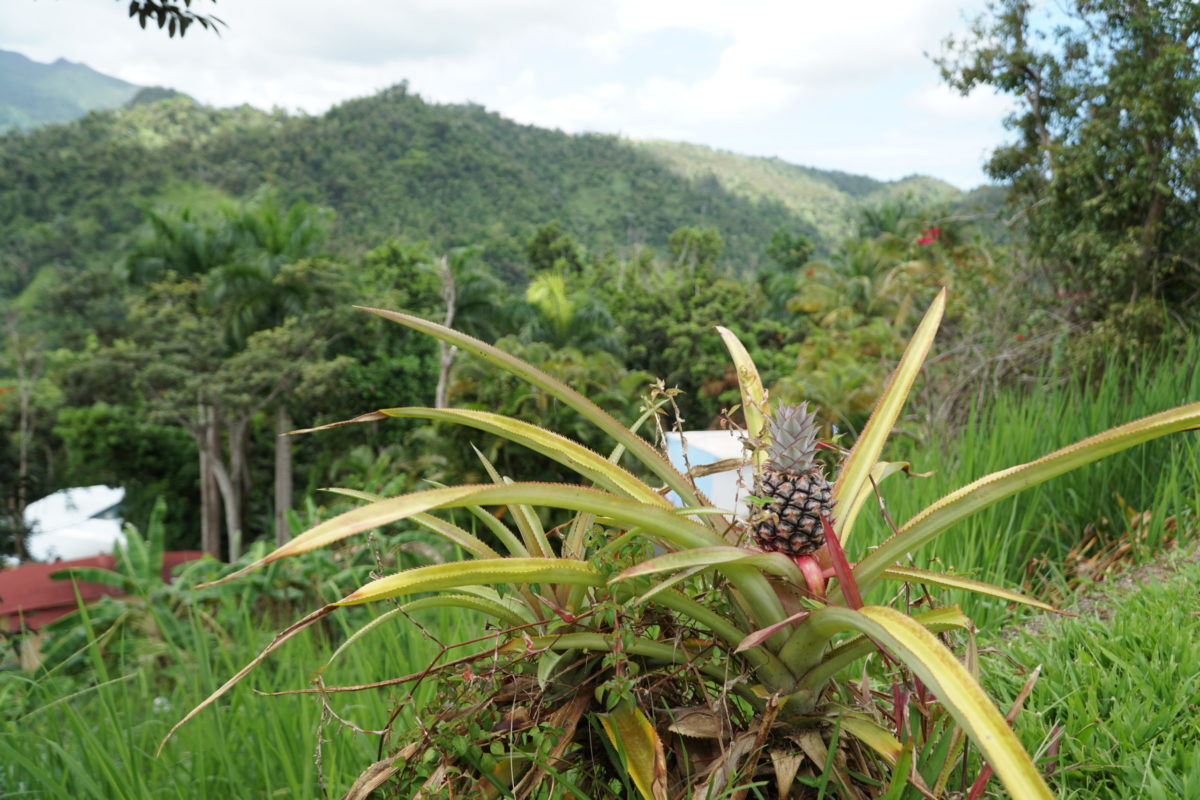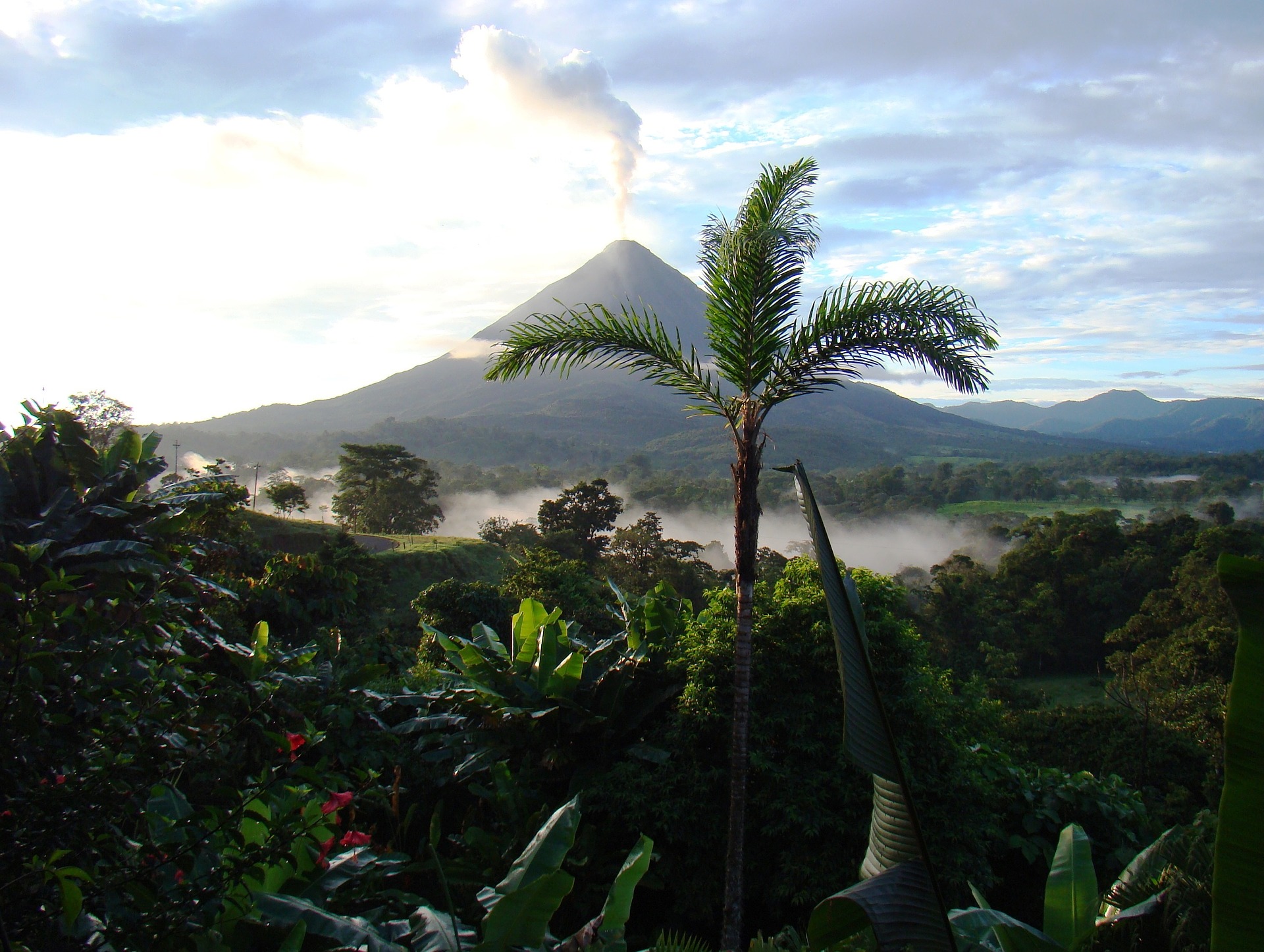By: Steph Liguori
“After the storm, our farm looked like Palm Springs. It was just red and brown. It’s not coming back as fast as we had hoped, but it looks much better than it did.”
After Hurricane Maria struck Puerto Rico in September 2017, many farmers struggled to regain their crops, sustainability, and finances. In a tale of rebirth, the hurricane destruction motivated Mark and Monica Donaldson to farm with more intention.

Imitating Nature
Mark and Monica live and work on “Hacienda Rosa,” a 7-acre permaculture farm that has been in Monica’s family for over 40 years. The holistic farming concept of permaculture places an emphasis on sustainability, accommodating the existing landscape, and maximizing production by only using what the natural environment has to offer. “We try to imitate nature,” Mark recounted of this sentiment.
Mark and Monica focus on planting indigenous species to Puerto Rico. Their crops include bananas, papayas, mangos, pineapples, and sugarcane. To combat potential future storm-loss, Mark and Monica now also plant low-lying root vegetables, which are less susceptible to the impacts of wind and rain.
Mark and Monica combat less-desirable environmental characteristics with green methods. They plant nitrogen-fixer plants to correct soil nutrient balance and machete-chop weeds for nutrient-rich organic matter deposition. They control the movement of rainwater over poorly-drained soils with a handmade system of ditches, and they have plans to install rain barrels for conserving rainwater. Certain areas of Hacienda Rosa are left untouched to promote soil protection from the sun and erosion. To Mark and Monica’s delight, untouched areas also encourage a natural pest-control: “Snakes are everywhere and we love them. They kill rats for us,” Mark says with a grin.

Community Involvement
Mark and Monica’s primary goal for restoring the hurricane-raddled Hacienda Rosa is to maintain a sustainable farm that can feed their immediate family and neighbors. Once immediate sustainability is maintained, they hope to get involved in community farmers’ markets. Eventually, they hope that their crops can be sold to local businesses, such as restaurants.
Growth to a point where they are selling to local businesses can produce some challenges with the idiosyncrasies of the Puerto Rican people. Food businesses in Puerto Rico are generally very dependent on imports, primarily from the contiguous United States. “That’s the ironic part,” Mark says, “because you have all this land here [in Puerto Rico] you can grow and produce on.”
Mark and Monica note that any of their future success is greatly influenced by their resident permaculturalist, Nick Jennisson. Nick is a certified permaculturalist who works at Hacienda Rosa – as well as some other neighboring farms – helping them achieve their permaculture goals.
Besides Nick, Mark and Monica have a rotating staff of volunteers from a work away program to help them with farm maintenance. One of these volunteers is Dave, a student studying urban farming in New York City. “It’s good to learn different methods and perspectives,” Dave says. “I hope I can take some of what I have learned home to the Bronx.”
Mark and Monica hope that one of their children will eventually take over the farm, but only if that is what they want. “The kids might want to go to school in the States,” they mention.

Accommodating Tourism
Some Puerto Rican farmers accommodate tourism into their existing practices. Mark and Monica manage a sugarcane-surrounded AirBnB rental on their property. Aptly named the “Sugar Shack,” it comes equipped with a composting toilet, a shower built around a live tree, and solar-powered lights. As their farm revives and grows, Mark and Monica aspire to indulge tourists with tours.
What do Mark and Monica think the best thing tourists can do to help a post-hurricane Puerto Rico?
“Come visit.”
They continue: “After the hurricane, people from the States and elsewhere were asking ‘how can we help?’ At first, we needed basic necessities like water and food. But now, as we continue to rebuild, the best thing you can do is visit and support our local economy.”
Steph Liguori is a freelance writer living near Washington, D.C. She is passionate about traveling, eating, and the food-human connection. You can read more of her writing at diaryofatravelingeatie.com and view some of her vibrant food photos at @diaryofatravelingeatie on Instagram.



